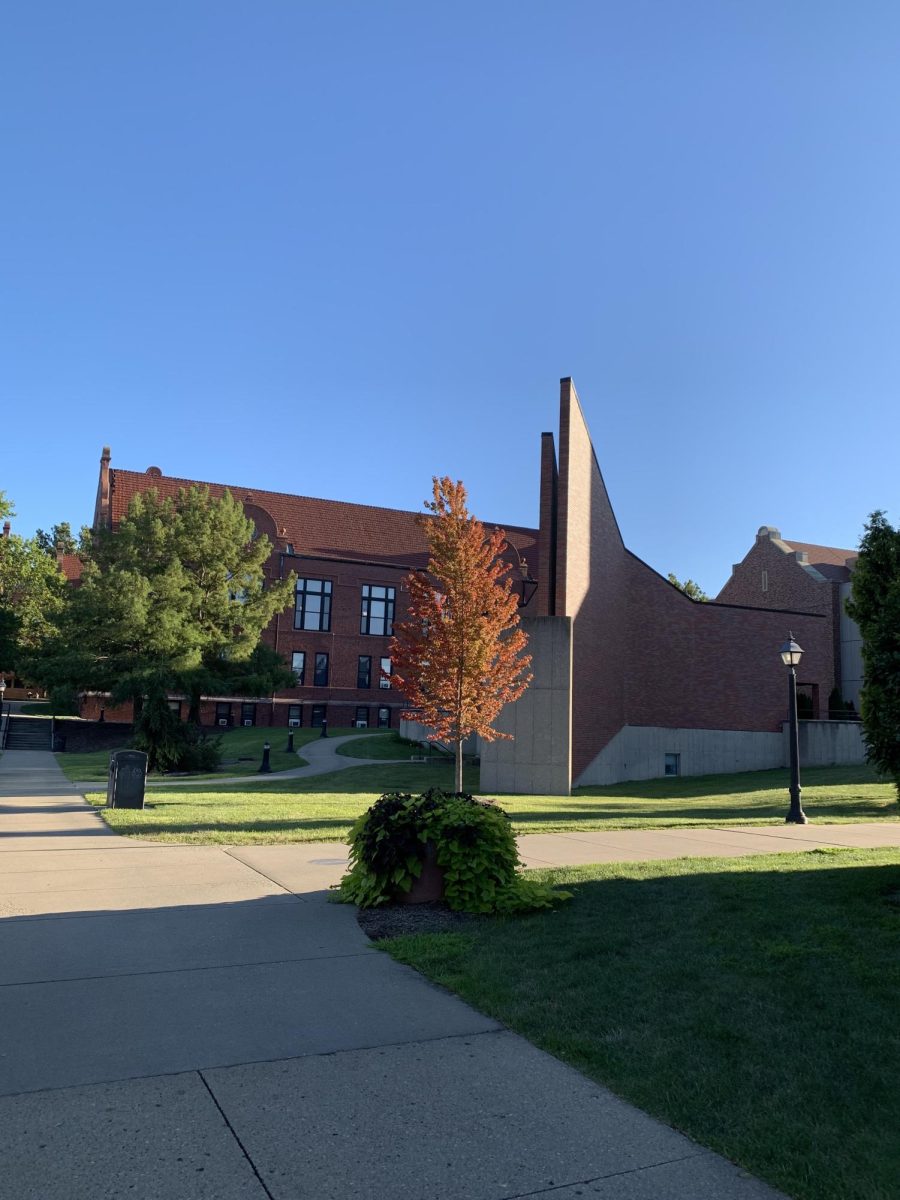Finals are perhaps the most dreaded week at Millikin, and understandably so. However, the burnout that midterms cause often flies under the radar, leaving students desperate midway through the semester.
Whether you have exams, labs, or papers due for midterms, these often sneak up on students and slowly drain their energy. Senior biochemistry major Madeline Klinger is no stranger to midterm burnout.
“I experience it every year,” Klinger said. “I am someone who struggles a lot with procrastination year-round, and I feel like it intensifies around midterm.”
Procrastination is a large cause and effect of academic burnout, but many times just the sheer amount of schoolwork students have burns them out during midterms.
“I had too many things going on in every category of things, such as extracurriculars, classes, and work,” junior English major Eden Niebrugge said, recalling a weekend in the weeks leading up to midterms.
Even though burnout intensifies around midterms, many students experience burnout throughout the whole semester.
“I was a summer edge mentor, so I came to school in July,” junior human resources major Reed Pierson said. “I was burned out before school started.”
How are students supposed to thrive if they are ready for school to be over before it truly begins?
However, identifying burnout can be hard, depending on who you are.
“Burnout gives me really bad anxiety, it just makes me shut down,” Pierson said. “Then when I feel burned out, I still want to do all my work because I have a fear of not getting [homework] done.”
For Klinger, burnout stems more from procrastination and being overwhelmed by schoolwork.
“[Burnout is] a lack of motivation to do anything, where you sit down and you’re just like, I want a moment to do something I want to enjoy, like read or sit and watch a TV show,” Klinger said. “But then you look up, and it’s four hours later.”
However, there are many tactics for tackling burnout. When Klinger begins to feel burned out and she can’t do homework anymore, she doesn’t try to work through the exhaustion; she stops and makes a game plan to complete her homework the next day.
“The first thing I do is make a list because I am going to forget everything,” Klinger said. “I get the list going, and then I set it aside. I plug all my devices in and get everything ready for the next day.”
After that, Klinger practices self-care by showering, reading a book, or doing anything she wants to give her brain a break.
Some students have a very positive school-life balance and enjoy planning out when their homework time is and when their “me” time is. To get organized, Niebrugge likes to plan out her homework time in advance.
“I schedule individual times for me to do certain homework based on when it’s due, how long it’s going to take, and how important it is,” Niebrugge said.
Even with a positive school-life balance, Niebrugge also prioritizes self-care in an attempt to fight inevitable burnout.
“I’ve been reading an hour before bedtime to get my eyes off the screen, and I use essential oils, diffusers, coffee, and chai tea,” Niebrugge said.
Self-care is an efficient way to fight burnout, but as well as utilizing self-care, Pierson likes to pace herself with her homework.
“I am really good at being like, ‘I’m going to get these three things done’ and then go hang out with my friends and then come back,” Pierson said.
Every student finds a way to cope with burnout, whether that be by practicing self-care or planning and pacing their homework time. But no matter what, midterms take a toll on students, and often professors don’t help with stress levels.
Some students had piles of homework to complete over spring break, like Klinger. Although she only lives 20 minutes away from campus, Klinger decided to stay on campus to complete her homework rather than enjoy her time at home.
“I can be more productive [at Millikin], but if I go home, I’m going to ignore it,” Klinger said. “I have to make myself go sit in the UC in an area where I can be productive.”
Many students don’t think it’s fair to have so much homework to do over the break.
“When we’re supposed to be taking a break, [professors] need to schedule assignments due on the Wednesday after,” Niebrugge said. “Then it’s considered within our working hours.”
Niebrugge identifies that many professors prioritize their work-life balance, but when scheduling homework due over break, it doesn’t adhere to many students’ school-life balance.
“A lot of professors put working hours on themselves but don’t consider that their students should also have a work-life balance,” Niebrugge said.
Even though midterm is such a stressful halfway point in the semester, it is important to note that Millikin has many resources to help. You can visit the Student Success Center, reach out to Wellness Peer Advocates, make an appointment at the Writing Center, or reach out to other paraprofessionals if you are having trouble with schoolwork.
Wellness Peer Advocates are new to Millikin and have gone under the radar. But they are more than willing to help students out.
“Taking advantage of office hours is a really great way for students to deal with burnout, and feeling tired and stressed,” Sophomore Wellness Peer Advocate Leah Flint said. “We can help offer solutions to students.”
All of the Wellness Peer Advocates have weekly office hours and people are free to drop in whenever they want to. The office is located in the basement of Pilling Chapel.
“It can be kind of daunting to go into office hours, but it’s just one of us sitting in the office probably doing homework, and it’s open the whole hour that we’re there,” Flint said. “You can pop in and you don’t even have to talk about anything. I’ve had people come by just to say hi and see a friendly face.”
Wellness Peer Advocates organize weekly events to help students destress and sometimes hold study sessions. For more information about Wellness Peer Advocates and their events and office hours, visit their Instagram at @wpa_millikin.
If you are feeling burnt out, you aren’t alone. We all experience burnout, just remember that Millikin has resources to help you academically and mentally. Burnout doesn’t have to extend outside of campus.



